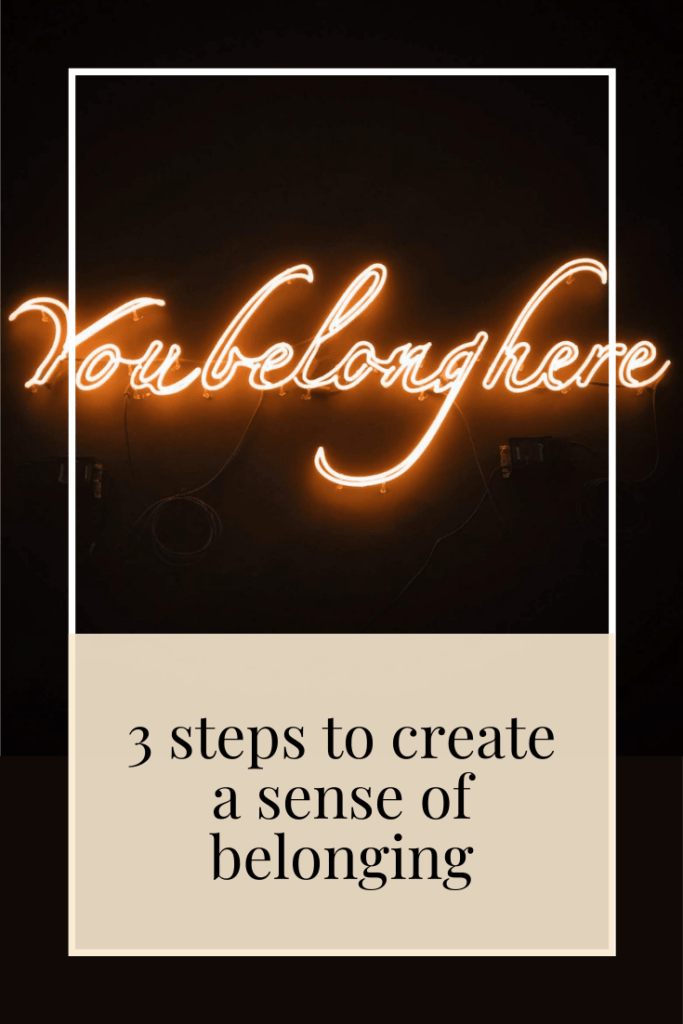Powerful word isn’t it? Belonging. One word capable of stirring up all sorts of emotions. A sense of loss. Loneliness. Fear. That gnawing pain quietly lurking deep down inside of you that you can’t quite reach and switch off.
When I was first diagnosed with my illness I suddenly felt like I no longer belong. I had this huge, overwhelming sense of “I’m different now”. Logically I still had the same things in common with my friends that I always had, but now I had this big grey sludge that would hang over me. I have an illness. I was different to them all.
Most people would never guess that I felt like this. I had a lot of friends, but there’s nothing quite like going through a difficult patch to find out who your true friends are. Having lived behind a mask during my marriage to keep the truth from others, and I found myself again losing people that I had thought were my friends, and so I slipped back behind that mask.
I can’t tell you how many times I’ve been surrounded by people and felt completely alone. It may seem odd, but I felt like I most belonged around complete strangers – people who didn’t know about my illness, people I may never see again, and therefore never had that look or tilt of the head when asking how I am. Being made to feel I had lost value.
As humans we seek to belong for safety. It’s unfortunately natural for many of us to be less-than-positive in these situations that our identity, mindset and worth are negatively affected.
Psychologist Abraham Maslow, in his model ‘the Hierarchy of Needs’, saw ‘love and belonging’ as so important he placed them third only to our basic ‘physiological needs’ such as oxygen, food, water, etc, and ‘safety needs’ like good health, personal security, and employment.
Belonging is more than fitting in. Brene Brown describes the difference as “‘Fitting in’ is our ability to assess a situation and adapt who we are – personality and behaviours – in order to feel accepted. ‘Belonging’ is about freedom – freedom from having to change in order to be accepted and valued and respected for being who you are.” In short, I get to be me if I belong, and I have to be like you to fit in.
But, how do you step out from behind the mask? As part of the process I developed to take control of my illness, this is what I did to be able to find that sense of belonging.
What don’t you know about yourself?
Or, what are you trying to ignore? Possibly the hardest for developing a feeling of belonging is learning to accept yourself. For many who didn’t accept themselves before experiencing a trauma this can be an exceptionally daunting task. You can’t fix what you don’t know, right?
The first step is to work out if you’re a writer, talker or listener. Yep, I know that sounds a little nuts, but I’m ok with that. I’m a big fan of journaling, but when I write I don’t connect emotionally until I speak the words out loud, even if to myself. For some people they speak the words out loud whilst recording, and then connect when they listen back to it.
So, are you a writer, talker, or listener?
Whichever one you are, start journaling. And just write. Start with questions such as
how you’re feeling,
who has annoyed you,
where you are in your life right now,
how pissed you are i.e. at your diagnosis,
the people who let you down (including yourself, because I know you think it).
Most importantly, uncensored! Write all of it. All the shitty, horrid, thoughts you have about yourself. You can always burn the paper and delete the recordings.
As you read/speak/hear your own thoughts, you’ll start to get a sense of your own mind and begin to develop your sense of self.
Re-assess your core values
Life has changed. It’s time to re-assess. I tried to still live with the values that I had, and to be honest I don’t think they were even mine, but ones I had inherited from family, and key people in my life. Those beliefs no longer worked for me, and I spent a lot of time finding my new ones, trial and error.
When you don’t know your values, or when you don’t follow them, you can feel lost, stressed, and unsure of what’s the best thing to do. Our emotional, mental and physical selves are positively affected when we live by our values, and when we don’t, we suffer. When something happens to flip your life, deciding what you’ll say no to is a great way to having a sense of control again. This isn’t about what you should value, or what other people think. This is about you, and starting to live life how you want to, for you and for your family.
Allow for the “and”…
In life we have many multi-faceted contradictory factors. Understanding and allowing that you can feel multiple ways — even if contradictory — allows that space to feel who you are. We can be one thing and another at the same time. You can be angry and happy at the same time, so it makes sense that you can feel confident as a mother, but not as a partner. Or, that you feel great at work, but not at home. Don’t view it as one or the other, as a but or an or. Think of it as “and” and instead try “I feel great at work, and I’m working on it for home”.
Know that you are not the only one to experience feeling you don’t belong.
I see you.
I feel you.
I value you.
If you try using this technique and find that it helps (or that it doesn’t!) please let me know!

